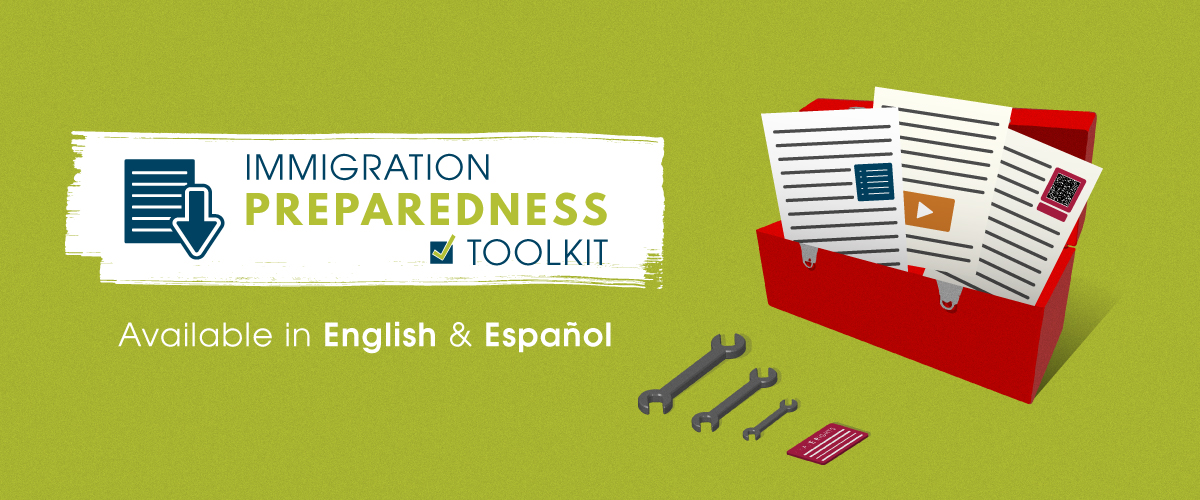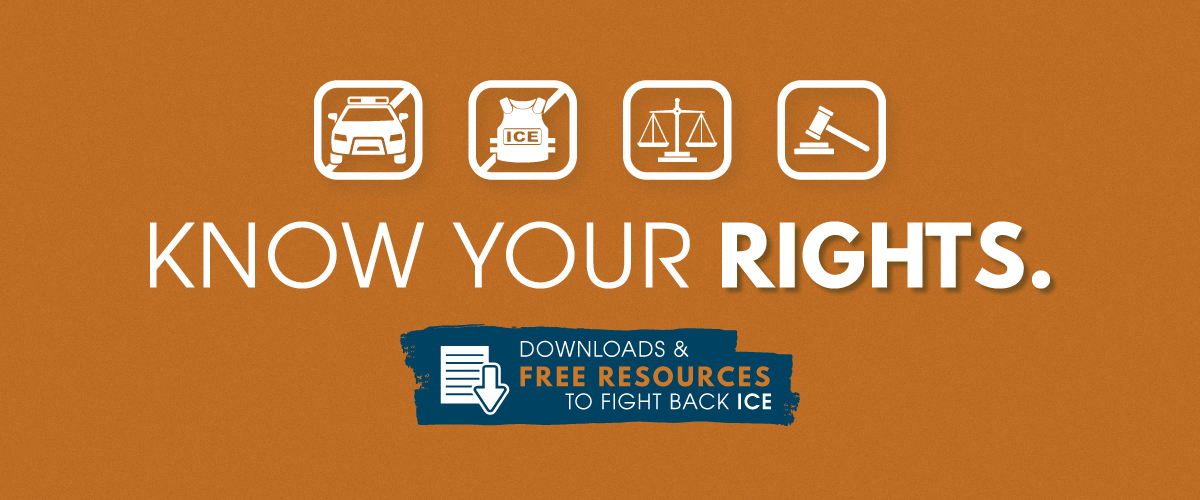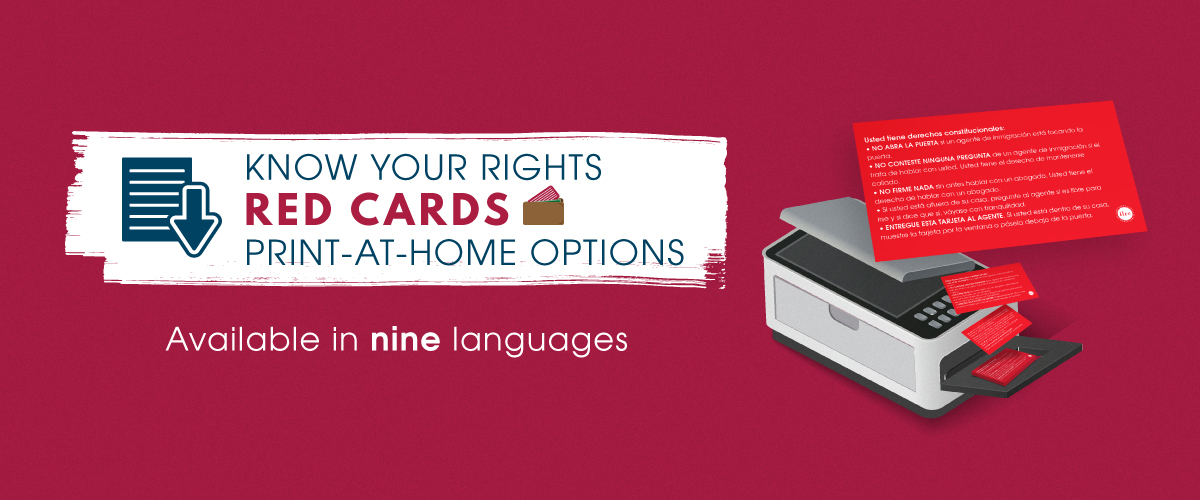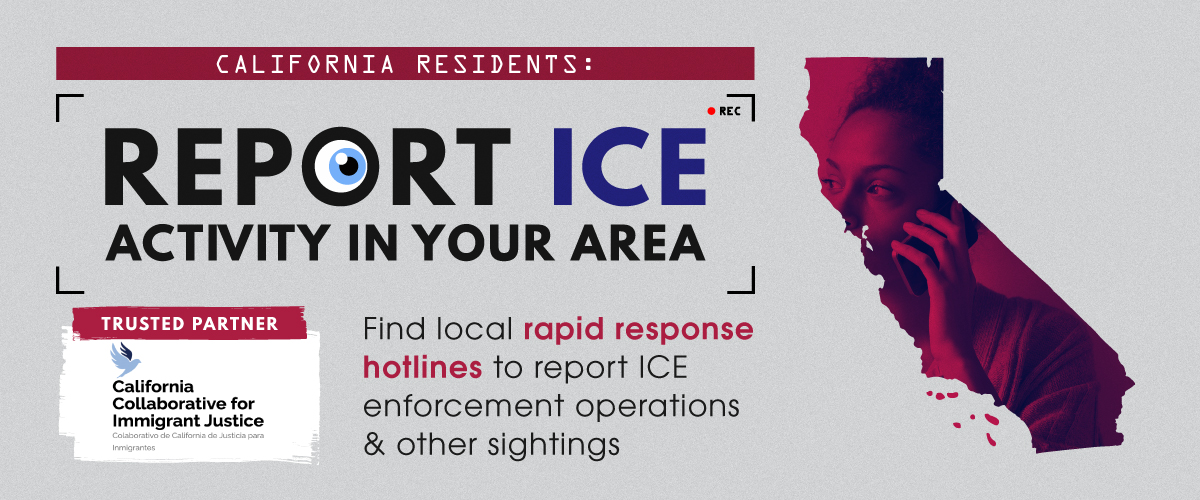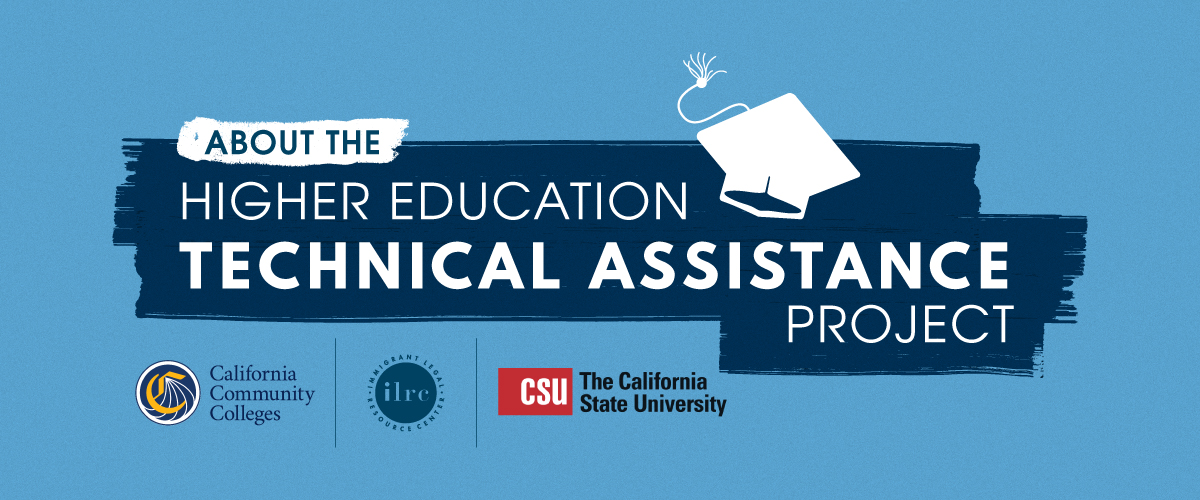Our Community Resources page is a prime embodiment of our commitment to bringing clarity to complicated immigration issues. Resources on this page include a wide range of downloadable tools produced for diverse audiences, from experienced advocates to directly impacted community members seeking answers about the complex world of immigration law.
If you are seeking legal support for your case:
The Immigrant Legal Resource Center’s main focus is to educate and assist attorneys and legal advocates in their work to help immigrants and their families. For over 40 years, we have impacted the field of immigration law with a three-pronged approach – capacity building, policy advocacy, and civic engagement. Because this work is generally focused around teaching, interpreting, and changing law to empower legal practitioners, we do not directly represent clients at the ILRC, nor do we provide individual legal consultations. If you are seeking legal advice or representation in your case, we encourage you to visit the Immigration Advocates Network’s National Immigration Legal Services Directory below to find a trusted legal service provider in your area. You can also go to LawHelpCA.org to find connections to legal aid organizations and referral services.
Latest Resources
This downloadable and printable toolkit is divided into different sections that give guidance on family preparedness planning, regardless of immigration status. It gives additional advice to undocumented and/or mixed status families.


